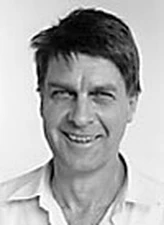Ernst-Detlef Schulze

The 2004 Vladimir Ivanovich Vernadsky Medal is awarded to Ernst-Detlef Schulze for his outstanding achievements in understanding the role of terrestrial ecosystem biogeochemistry in biosphere-atmosphere interactions.
Prof. Ernst-Detlef Schulze was born on September 12th 1941 in Berlin, Germany. He studied forestry at the University of Göttingen, Germany and subsequently Botany (M.A.) at the University of California, Los Angeles. He obtained a PhD in ecology at the University of Würzburg, Germany. He became Associate professor at the University of Würzburg and full professor at University of Bayreuth where he also served as Director of the Institute of Terrestrial Ecosystem Research (BITÖK). He is currently Director of the Max Planck Institute for Biogeochemistry in Jena, Germany.
Schulze started his work by addressing fundamental questions on the response of plants to environmental conditions. He was the first to demonstrate a direct humidity response of stomata as well as the signalling of water stress through root metabolism. He also furthered research on the impact of acid rain on forests by introducing, for the first time, the ‘critical load’ concept.
These important studies on basic processes of leaf physiology had a significant impact on global circulation models. Indeed he was the first to expand the concept of biosphere – atmosphere interactions from the level of a single organ to those of ecosystems, regions and continents. By estimating ecosystem level fluxes with isotopic techniques, he contributed to understanding the role of nitrogen, carbon and water biogeochemical cycles at the global scale. His interest in soil biogeochemistry gave us a comprehensive global analysis of root biomass and rooting depth. This information was implemented into global carbon cycle models.
He addressed the role of disturbances on the global Carbon Cycle by introducing for the first time the concept of ‘Net Biome Productivity’. Furthermore, he helped to understand the role of terrestrial biodiversity in primary productivity and ecosystem biogeochemistry. Due to his authoritative expertise in terrestrial biogeochemistry he frequently advised intergovernmental bodies, such as IPCC, on the implementation of international conventions for the protection of the environment.
Prof. Ernst-Detlef Schulze’s pioneer work created a new generation of ideas on the role of the terrestrial biosphere in the global biogeochemical cycling and climate. This work helped us to understand the complex relationships which regulate the dynamics of the Earth System.
